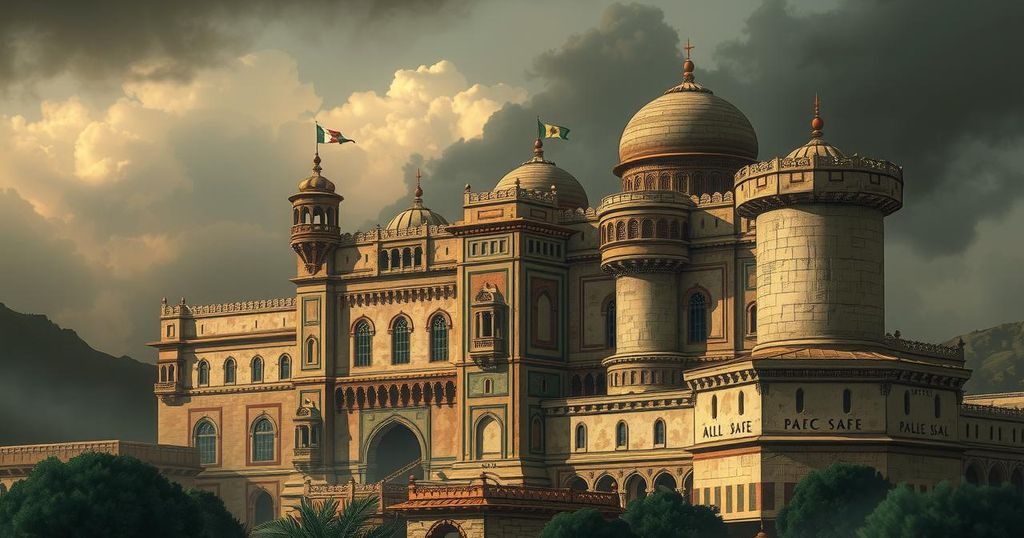Impact of the Presidential Palace Recapture on Sudan’s Ongoing Conflict
The Sudanese Armed Forces’ recapture of the presidential palace in Khartoum signifies a key moment against the paramilitary Rapid Support Forces. Despite territorial gains, significant challenges remain, including ongoing violence and a dire humanitarian crisis. The potential shift in power dynamics raises uncertainties about the future direction of the war and peace negotiations.
The recapture of the presidential palace in Khartoum by the Sudanese Armed Forces (SAF) marks a pivotal moment in their ongoing conflict with the paramilitary Rapid Support Forces (RSF). After losing control of the capital early in the war, the SAF has regained significant territory over the past months, with the presidential complex serving as a vital symbol of power for the military-led government.
While the SAF has successfully pushed RSF fighters from many key locations within Khartoum, including government buildings, it remains unclear how much ground has been gained, as RSF units are still active in certain areas of the city. The ongoing conflict suggests that bloody fighting will persist as the SAF seeks to eliminate remaining RSF forces.
Assuming the SAF solidifies its control over Khartoum, it could alter the landscape of the war. The military might use this momentum to confront RSF controls in Darfur. However, experts caution that it could also lead to a de-facto division of Sudan, entrenching the opposing forces and their respective spheres of influence.
The RSF continues to assert itself in the regions it governs, recently initiating efforts to establish a parallel government and garnering the support of allied factions. Despite recent military setbacks, it remains determined to maintain its influence and ambitions within the country.
Meanwhile, the humanitarian crisis in Sudan worsens as civilians suffer extensively due to the conflict. The United Nations has declared the situation as the world’s worst humanitarian crisis, with millions displaced and facing severe food shortages. The prospect of humanitarian aid reaching those in need remains bleak, with both warring factions accused of exploitation and obstruction of assistance.
The SAF hopes that retaking the presidential palace will serve as a stepping stone to broader victory, but the likelihood of achieving comprehensive control over Sudan remains uncertain. Both parties have committed to continuing the fight, as peace negotiations appear stalled.
In summary, the recapture of the presidential palace by the Sudanese Armed Forces marks a significant achievement but does not guarantee a resolution to the ongoing conflict with the Rapid Support Forces. The humanitarian crisis continues to escalate, affecting millions in Sudan. Despite the military’s recent gains, the prospect of achieving overall peace remains distant, with both sides entrenched in their positions and unwilling to pursue negotiations.
Original Source: www.bbc.com




Post Comment